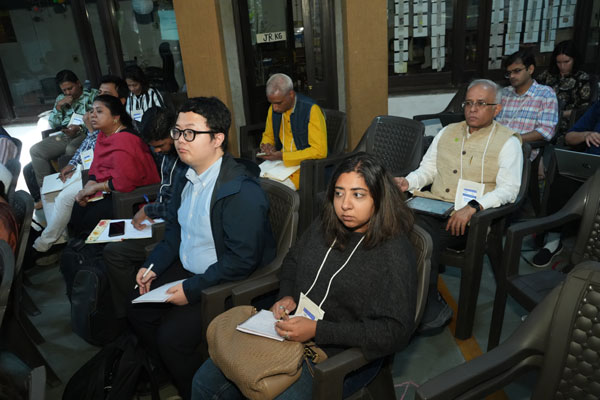The global climate crisis, biodiversity loss, and unsustainable consumption patterns demand a rethinking of traditional education systems. A green curriculum integrates climate mitigation and adaptation into teaching and learning across pre-primary, primary, secondary, and tertiary education, as well as in teacher training. It emphasises the interconnections between the environment, economy, and society, engaging students across cognitive, socio-emotional, and behavioural domains to inspire action for sustainability. By involving teachers, policymakers, and communities, we can create education systems that empower learners to make meaningful changes for a better future.
This initiative is more than just updating textbooks; it's about transforming education to inspire sustainable thinking and actions at every level. It involves embracing a lifelong learning approach that integrates climate education into school curricula, technical and vocational education, workplace skills development, teaching materials, pedagogy, and assessment.
The objectives of this approach are to highlight the importance of integrating sustainability into education systems and to share innovative, scalable practices for sustainability education across the region. The Green Curriculum session brought together experts to discuss sustainability education across India and South and Southeast Asia, highlighting key insights and initiatives. The session was attended by around 40 participants.


Speakers
Ms Madhavi Joshi,
SASEANEE Director and Senior Programme Director, CEE

Mr Abhinav Kumar,
UNESCO, Programme Coordinator of Education Sector, Delhi
Dr Kavita Sharma,
Prof Department of Elementary Education (DEE), NCERT
Ms Kunali Sanghvi,
Learning Innovation Specialist, Researcher, and Enthusiast
Ms Subarna Sivapalan,
Associate Professor of Education / Associate Dean of Research and Knowledge Exchange, Faculty of Arts and Social Sciences in University of Nottingham Malaysia
Mr Bidhan Chandra Pal,
Founder and Managing Director, Probha Aurora, Bangladesh
Dr Muzailin Affan,
Director at International Office, Syiah Kuala University, Indonesia and Assistant Professor in the Department of Informatics